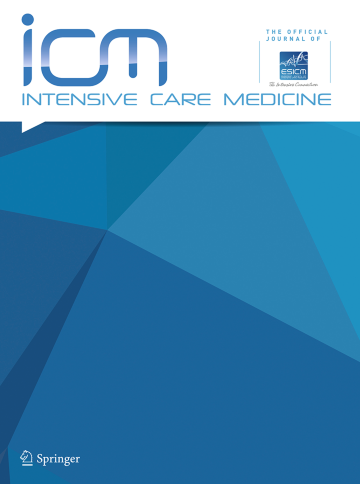What measures have been used to explore the outcomes of family members of critically ill patients: a scoping review.
IF 21.2
1区 医学
Q1 CRITICAL CARE MEDICINE
引用次数: 0
Abstract
BACKGROUND Family members of critically ill patients are known to experience short and longer term challenges, including emotional and social problems. To undertake robust future interventional research to support this cohort, we undertook a comprehensive evaluation of the measures used in family outcome research to date. DESIGN Scoping review. We searched Medline, PsycINFO, Scopus, CINAHL, and Web of Science (core collection) for articles published between 2000 and 2024 which examined the outcomes of family members of critically ill patients. Data on outcome measures, study design, and population characteristics were extracted from eligible studies. RESULTS We reviewed 9873 abstracts and identified 388 eligible unique family member cohorts. Across these studies, there were 59 (15.2%) randomised control trials, 287 (74.0%) observational cohorts, 8 (2.1%) quality improvement programmes, and 34 (8.8%) non-randomised controlled interventional studies. Most research was undertaken in USA, Canada, and Europe (n = 264, 67.5%). A total of 218 different outcomes measures were used across the studies included. In this review, 345 (89%) studies measured emotional or psychological outcomes, 85 (22%) measured family experience outcomes, 65 (17%) measured general functional status, quality of life or well-being outcomes, 35 (9%) measured environmental or social outcomes, and 10 (3%) measured cognitive outcomes. CONCLUSIONS We identified 388 studies which reported the outcomes of family members of critically ill patients. Over 200 different outcomes measures were utilised, exploring conceptual domains such as quality of life as well as psychological and social outcomes. The majority of studies were observational in nature with variable follow-up timelines. This review has highlighted that a core outcome measure set is essential to enable reliable, robust, and comparable interventional research in this area.使用了哪些措施来探索危重患者家庭成员的结果:范围审查。
众所周知,危重患者的家庭成员会经历短期和长期的挑战,包括情绪和社会问题。为了开展强有力的未来干预性研究来支持这一队列研究,我们对迄今为止在家庭结局研究中使用的措施进行了全面评估。DESIGNScoping审查。我们检索了Medline、PsycINFO、Scopus、CINAHL和Web of Science(核心合集)2000年至2024年间发表的关于危重患者家属结果的文章。从符合条件的研究中提取有关结果测量、研究设计和人群特征的数据。结果我们回顾了9873篇摘要,确定了388个符合条件的独特家庭成员队列。在这些研究中,有59项(15.2%)随机对照试验,287项(74.0%)观察性队列,8项(2.1%)质量改进方案和34项(8.8%)非随机对照干预性研究。大多数研究在美国、加拿大和欧洲进行(n = 264, 67.5%)。纳入的研究共使用了218种不同的结果测量方法。在本综述中,345(89%)项研究测量了情感或心理结果,85(22%)项研究测量了家庭经验结果,65(17%)项研究测量了一般功能状态、生活质量或幸福结果,35(9%)项研究测量了环境或社会结果,10(3%)项研究测量了认知结果。结论388项研究报告了危重患者家属的预后。使用了200多种不同的结果测量方法,探索诸如生活质量以及心理和社会结果等概念领域。大多数研究本质上是观察性的,随访时间不同。本综述强调,一个核心结果测量集对于在该领域开展可靠、稳健和可比较的干预性研究至关重要。
本文章由计算机程序翻译,如有差异,请以英文原文为准。
求助全文
约1分钟内获得全文
求助全文
来源期刊

Intensive Care Medicine
医学-危重病医学
CiteScore
51.50
自引率
2.80%
发文量
326
审稿时长
1 months
期刊介绍:
Intensive Care Medicine is the premier publication platform fostering the communication and exchange of cutting-edge research and ideas within the field of intensive care medicine on a comprehensive scale. Catering to professionals involved in intensive medical care, including intensivists, medical specialists, nurses, and other healthcare professionals, ICM stands as the official journal of The European Society of Intensive Care Medicine. ICM is dedicated to advancing the understanding and practice of intensive care medicine among professionals in Europe and beyond. The journal provides a robust platform for disseminating current research findings and innovative ideas in intensive care medicine. Content published in Intensive Care Medicine encompasses a wide range, including review articles, original research papers, letters, reviews, debates, and more.
 求助内容:
求助内容: 应助结果提醒方式:
应助结果提醒方式:


